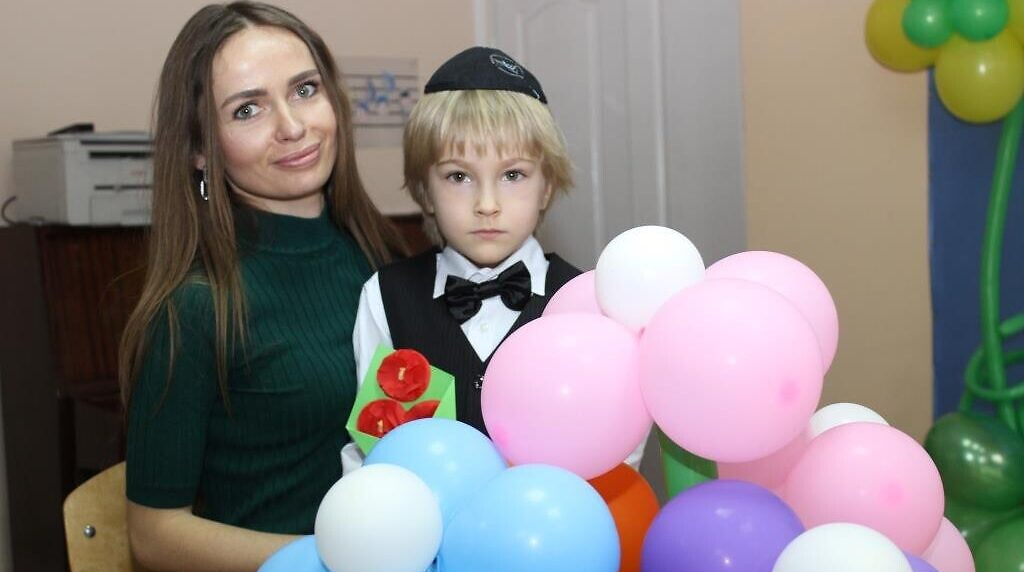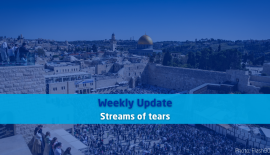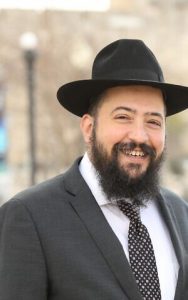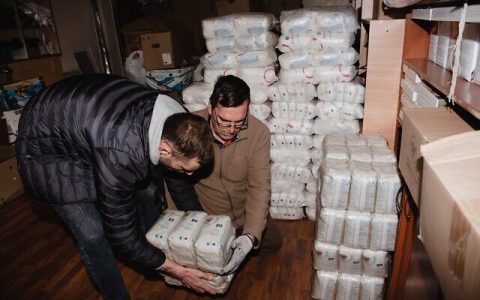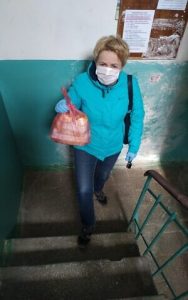‘My bag’s packed’: Jewish lawyer who fled 2014 Ukraine fight readies for the worst
Sue Surkes - 17 February 2022This article was first published in the Times of Israel: go to the article
Viktoria Smyrnova of the Jewish community in Mariupol feels she’s ‘sitting on a bomb,’ as Jewish organizations plan for crisis amid fears of Russian invasion.
Amid fears of another Russian invasion of Ukraine, Viktoria Smyrnova says she knows what it’s like to be in a war zone.
Now 37, she once ran a successful law firm in Donetsk in eastern Ukraine and owned three apartments. Her husband Ivan had a steady job as an engineer.
That all came to an end in 2014 when Russian-backed separatists declared independence from Ukraine and proclaimed the Donetsk People’s Republic and, to the north, the Luhansk People’s Republic, both in the Donbas region.
“It was too dangerous to stay,” she told The Times of Israel from Mariupol, her current home, located just 20 kilometers (12 miles) or so from the border of Donetsk, which is not internationally recognized.
“Donetsk was being shelled by heavy weapons. There were lots of dangerous armed people around, and military planes were flying above our apartment building,” Smyrnova said.
After spending a month with an uncle in Crimea, which had already been annexed by Russia but was calm, the family moved to Mariupol because Ivan was offered a job there by his original employer.
Viktoria was unable to continue practicing law, though. Many of her Donetsk clients had gone bankrupt. A fluent English speaker, she now works as a buyer of various goods.
Western countries have been winding down their diplomatic missions in Ukraine and urging their citizens to leave immediately, after a frantic week of diplomacy failed to calm one of the most explosive standoffs since the Cold War.
Washington has warned that the Russian deployments along the Ukrainian border — estimated at 130,000 soldiers backed by various missiles and tanks — were sufficient to launch a major invasion “any day.” US officials said an attack would likely start with a barrage of missiles and bomb attacks.
“I’m really scared with all this talk about a Russian invasion,” Smyrnova said. “I haven’t unpacked that little bag since 2014. It has all of our documents and my jewelry. If something happens I’ll take the bag and run, although I have no idea where to run to. The border is closed with Crimea and I can’t go back to Donetsk.
“Everyone is confused and scared,” she added. We often discuss what to take in case of an invasion. Nobody knows anything. We feel that we are sitting on a bomb.”
Smyrnova is one of many refugees from the Donbas region to have joined the Mariupol synagogue headed by Israel-born Chabad Rabbi Mendel Cohen.
Cohen, 40, has been in the Israeli news twice — for contracting COVID-19 and being flown to Israel in serious condition, and for the ax-wielding attacker who tried to get into his synagogue but was fought off by the security guard.
He and his wife Esti have lived in Mariupol as Chabad emissaries since 2005, setting up a string of Jewish institutions in the city.
The years 2014 and 2015 are etched into his memory too — shooting in the streets and a Sabbath during which 120 rockets rained down.
“We still hear shootings and explosives all the time from over the border,” he said. “We have people [in the community] whose homes were blown up [in Donbas].
“There’s worry, but not panic. People want to retain their routines.”
He added, “We have a team of volunteers that has been active since the start of COVID-19. They’re ready with medicines, food, and equipment with which to help.
“We are following events and are in close contact with the Jewish Agency, the Israeli embassy, and other Chabad communities,” Cohen said.
Israel has been preparing for the possibility that it will need to evacuate its citizens from Ukraine overland through neighboring countries. Foreign Minister Yair Lapid said Saturday night that Israel had to be more cautious than other countries in its public statements because there are large Jewish populations in both Ukraine and Russia.
“Part of our task is to protect them, and that requires us to be more cautious in such a conflict,” he said. “But Israel’s position, like that of the West, is clear: We must do everything in order to avoid armed conflict between Russia and Ukraine.”
Lapid said that 6,050 Israelis had signed up through the Israeli embassy’s website to receive updates and emergency information, and that the Foreign Ministry was in touch with the local Jewish community through its leadership.
Christian assistance
On the other side of the country from Cohen, in Vinnytsia in west-central Ukraine, Koen Carlier has been busy preparing to look after Ukrainian Jews should war break out.
“The golden rule is not to panic,” said Carlier, who directs the Ukraine branch of the Netherlands-based Christians for Israel, which encourages Jewish immigration to Israel. “Daily life continues as normal. The war that started in 2014 in eastern Ukraine took us completely by surprise. Lots of [Jewish] refugees came to different parts of Ukraine and we weren’t prepared.
“Now we are prepared, and we have something to offer to Jews who want to emigrate to Israel if their plans are disrupted. We have arranged various places so that we can easily shelter up to 600 people for a few days, and maybe even stretch to 1,000 places.”
Carlier’s team of 10, backed by scores of volunteers, usually distributes around 30,000 food parcels a year to needy Jews, many of them elderly, across Ukraine. This year, it’s planning for 40,000. Since December, the organization has doubled distribution, partly on account of the harder winter months, but also to ensure that recipients have extra food in store in case of war.
In the Ukrainian capital Kyiv, traffic has considerably thinned out, Carlier said. People who can afford it are taking vacation time and leaving the city with their families for places likely to be safer in case of a Russian invasion.
“We have lived through this war since 2014,” Carlier’s wife Ira said. “Every other day we hear about soldiers being killed, shootings here or there. People adjust and learn how to live with the situation.
“But they also understand that if it comes to war, it will be crueler than in 2014, with more bloodshed and destruction. In 2014, we weren’t ready. We had always been told that Russia, Belarus, and Ukraine were brothers, one nation. We had no army, and we were taken over, just like that. Now we have a stronger army. We are supplied with weapons. We are stronger and the opposition will be stronger.
“It will not be just troops but maybe also aerial bombing. And people fear it will be over a bigger area. It will threaten the Black Sea and Odessa. There are Russian troops in the north with Belarus. The only place left to escape is to the west, to Poland and Romania, and that area. Will refugees be welcome there is also a big question.”
A well-known member of the Russian-speaking community in Israel, who asked to remain anonymous, said that the impression from daily conversations with friends in Ukraine was that the urgency being whipped up in the US and Western media was not being felt in the Ukrainian military preparations on the ground.
Ukrainian patriotism was strongly felt, the person added. “I feel it in the lack of willingness to speak Russian. On a few occasions, when I started speaking Russian with a native Russian speaker from Ukraine, they switched to Ukrainian.
“This time, the Ukrainians are far less willing to give in.”
